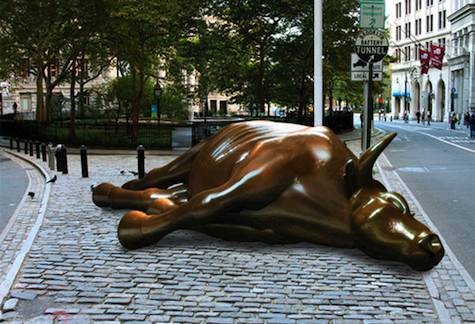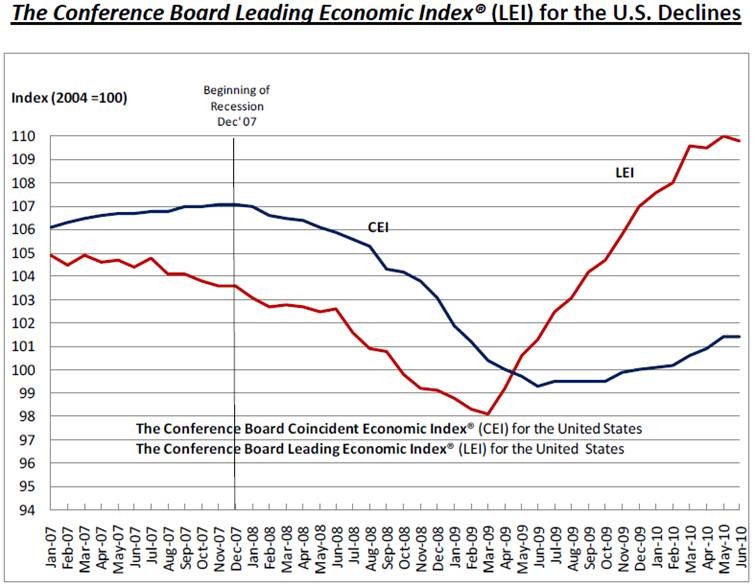Characteristics of A Double Dip Recession
Post on: 1 Апрель, 2015 No Comment

by Silicon Valley Blogger on 2011-06-15 21
On October 2009, I pondered out loud: Is the bull back?!
Back then, we saw the stock market hit the magic Dow Jones 10,000 mark, as the indexes fought against gravity to climb up to that milestone. Its still a ways away from the record setting 14,000 for the DJIA, which was once achieved in 2007, but it may feel like were getting there. In between 2009 and today, though, we are seeing a lot of fits and starts in the stock market, while the movement is still generally upward. It seems like our investments may have recovered somewhat, but what about the economy?
Sure, were supposedly in an economic recovery right now, but there are still people who are feeling the pinch of lost jobs, no jobs or upside down mortgages, as far as Ive noticed. Were far from celebrating here in my home state: the California unemployment rate is still hovering at around 12%, as this interactive graph shows. Theres some improvement, but not much.
Image from the NY Times
Whats more concerning to me is one event that some economists are warning about: the risk of a double dip recession for our economy. For instance, I heard about how Carl Icahn (a billionaire investor) has been addressing the possibility of a double dip recession if the unemployment rate continued to rise and if people put a cap on their spending. In 2009, he thought we were right on the precipice of another economic contraction (quoted from this Bloomberg article ). Well, its been a couple of years and these same fears are now back in vogue.
Robert Shiller Speaks Out About A Possible Double Dip Recession
Then theres Robert Shiller, the well known economist, who tells us that were at a tipping point with the U.S. economy. I came across a pretty interesting video that featured this guy, where he discusses the possibility of a recession. Note that technically speaking, the term double dip may or may not be applicable if you are to check actual time periods for growth and pullbacks. Its possible that we are looking at a brand new recession anyway (rather than a double dip) based on timing, but thats another argument for another day.
According to Shiller, standard forecasting models show that recession concerns are unfounded. However, there are some indicators and continued economic scenarios that worry him. For instance, real estate prices have not improved and there has never been a post WWII recovery without a housing recovery. No chance here for robust or sustained economic growth if housing stays in the dumps.
There have also been changes in peoples expectations of future home price increases. Some studies show that those expectations have fallen drastically. The general market feels that over the next 10 years, housing prices will increase 3% per year vs the buoyant 7% a year that was the answer back in 2005. Given that the 30 year mortgage rate is at 4.5%, this discrepancy points to poor confidence in the real estate sector.
Another area to look at is the situation with the global economy: rich economies are showing signs of slowdown, developing markets are showing an uptick in inflation and then there are issues with Greeces economy. These have all been confidence shakers. We face a debt crisis (thanks to bubble thinking and complacency).
Finally, there are some predictions that if oil hits a certain price per barrel, were all doomed to recession. The main thing pointed out by Shiller is that confidence is faltering, which tends to be a big negative influence on the economy. So the bad news seems to be swirling, despite the continued optimism of professional forecasters (some government agencies and Robert Rubin dont see the specter of a double dip).

Robert Shiller gave some direction on how our country can improve its financial outlook for the long term. Bailouts, stimulus programs and regulatory reform may have positive effects, but he suggests additional reforms in the financial industry, our financial system and in institutions. He mentions that we need a financial system that actually helps people rather than one that sends them down the wrong path (as what happened during the subprime mortgage crisis ). You can expect a turnaround once fundamental improvements are made in the way the financial industry serves its customers.
I certainly agree that we need fundamental changes here. I would encourage you to check out the Shiller discussion.
A Few Basic Questions About Economic Fundamentals
As I review the economys fundamentals, I feel uncertain about a few matters:
- Were supposed to have recovered from the worst recession since the 1930s. A good number of people may tell you they havent noticed much of an economic recovery.
- Unemployment numbers havent improved much across the board.
- Interest rates are very low, but is this helping out at all?
- Whats fueling the markets rise? Improved earnings reports, apparently, but this may be a result of business cut backs and company layoffs, rather than real growth.
So how do you feel about the economys future?














